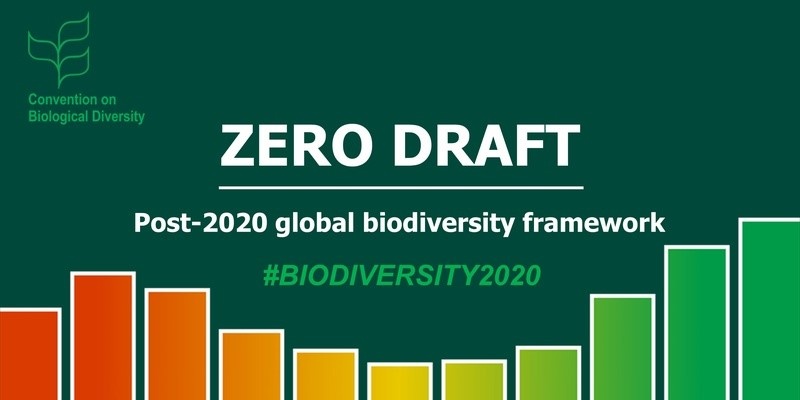The IPPC community contributes to development of the post-2020 global biodiversity framework
Posted on Fri, 03 Apr 2020, 13:02

Rome, 26 March 2020. A virtual meeting on the post-2020 Global Biodiversity Framework (GBF) was convened by UNEP to seek input from Multilateral Environmental Agreements. The meeting, chaired by Ms Tita Korvenoja (UNEP) and Ms Diane Klaimi (UNEP), featured presentations by Mr Basile van Havre, co-chair of the Open-Ended Working Group on the post-2020 GBF, Mr Neil Pratt (CBD Secretariat), Ms Katharina Bieberstein (UNEP-WCMC), and Mr Anne-Theo Seinen (EU). The IPPC delegation led Mr Jingyuan Xia, IPPC Secretary, attended the meeting, including Mr Craig Fedchock, IPPC Senior Adviser, Mr. Mirko Montuori, Public Information Officer of the IPPC Secretariat, Artur Shamilov, Standard Setting Officer of the IPPC Secretariat and Ms. Janka Kiss, Standard Setting Associate of the IPPC Secretariat, as well as Mr Ezequiel Ferro, Chair of the IPPC Standards Committee.
In recognition of the IPPC’s mandate, the IPPC Secretariat has been a member of the Biodiversity Liaison Group since 2015. The IPPC Secretariat’s key concerns in the area of biodiversity are in relation to invasive alien species (IAS), which are plant pests and to providing guidance for assessing the risks to biodiversity of Living Modified Organisms (LMOs).
In relation to the target and indicators on IAS, the IPPC Secretariat suggested consideration of the following three principles, which may help and nurture their further revision.
1) The target should consider the shared mandate of the IPPC and CBD in relation to IAS: despite IAS, which are a key concern in the CBD, IAS which are pests of plants, are also a key concern to the IPPC Community, yet there is no mention of the IPPC, nor ISPMs and other instruments in this draft. Concerning IAS that are regulated as quarantine pests, the entire phytosanitary infrastructure could help manage IAS (as pests). We encourage Ministers of the Environment (CBD focal points) and National Plant Protection Organizations (IPPC contact points) to cooperate towards the prevention and if needed, the management of IAS as a joint goal. Specifically, we believe that the target on IAS should include the concept of “safe trade” and consider both intentional and unintentional introduction of invasive species. In addition, potentially invasive species should be considered for all ecosystems (e.g. forestry pests and aquatic plants).
2) The second principle is that we should learn from the past: the Aichi biodiversity target 9 on IAS was not achieved and the indicators were mostly qualitative; in this draft, indicators should be more quantitative and realistic. In particular, the addition of a quantitative objective for a reduction in rate of new introductions seems essential. This should include prevention or at least early and increased detection and interception of IAS, and increased effectiveness of eradication programmes to eliminate the impact of IAS on biodiversity and ecosystems. Consideration should be given to using the information submitted to meet IPPC National Reporting Obligations as indicators, which could provide a good baseline and later as a measure of success. There is no global method to record the impact of IAS. NPPOs may support the development of a national list of the most important IAS and carry out pest risk analysis, provide pest report statistics, etc. for these IAS. However, it is very difficult to set such a list at the global level as the risk varies between areas.
3) The approach on how to measure indicators should take account of the following components: a) communications; b) resource mobilization; and c) capacity development. Efforts need to be made to help support more investment for surveillance, consistent with the IPPC message of prevention being a better option than eradication or management.
The IPPC Secretariat and community are committed to engage in the current formulation of the IAS-related indicators based on these principles. The IPPC Secretariat also noted ongoing efforts towards implementing a Data Reporting Tool (DART) and expanding its use to various conventions.
The Zero draft of the post-2020 Global Biodiversity Framework is available at https://www.cbd.int/doc/c/efb0/1f84/a892b98d2982a829962b6371/wg2020-02-03-en.pdf
The website on the post-2020 Global Biodiversity Framework is available at https://www.cbd.int/conferences/post2020

